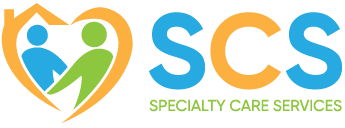Cerebral Palsy In-Home Care for Adults and Children
Maryland, Washington, D.C., and Northern Virginia
24/7 Nurse Availability
Free In-Home Assessments
Over 25 Years of Experience
Hours:
Request Call Back
Hero Request Form
Thank you for contacting us.
We will get back to you as soon as possible.
Please try again later.
Specialized Cerebral Palsy Home Care Services
Get reliable, Cerebral Palsy-experienced home nurses and caregivers! We create a custom plan based on your loved one’s goals, medical needs, and preferences. If you’re supporting someone with cerebral palsy (CP), you already know that medical needs can change week-to-week—and that taking care of your loved one can feel like a full-time job.
Our Cerebral Palsy Home Care program is designed for clients and their families who require skilled, reliable, in-home nursing and caregiver support.
Who We Serve - and Why
CP is the most common childhood motor disability, leading to many children being physically and socially isolated. Across all ages, around 750,000 people in the US have CP. This means that, across the DC area where Specialty Care Services provides care, around 3,000 children and 11,000 adults are currently diagnosed with CP. [1]
About 30% of children and adults with CP have symptoms that are considered “severe” and have high-support needs. [2] [3] These are individuals who often require full-time care from trained medical professionals and caretakers. Specialty Care Services offers this helpful care.
Who This Service Is (Especially) For
- Children and adults with CP who need medically trained caregivers to assist with:
- Medication management, reminders, & administration
- Seizure care and assistance
- Tracheostomy care
- Tube feeding
- Complex transfers/positioning
- Bowel/bladder management
- Fall-prevention
- Pain & spasticity protocols
- Preventive care to reduce the incidence of disease and further complications
- Children with CP who require care after school and are interested in our community integration programs.
- Families experiencing burnout or high weekly hours of care - studies of adults with CP show that about 45% receive personal assistance, and about 20% need 160 hours/week of care. [4] We help build sustainable, personalized support teams to address all the needs of those with CP.
- Senior Adults with CP who need preventive, coordinated care to manage symptoms, additional healthcare conditions, and improve health outcomes.
From more than 25 years of home care, we’ve found that it’s normal (and often necessary) to utilize personalized care for those with CP so they can flourish.
How We Provide Care
We create personalized care plans for our CP clients depending on their needs, which can include:
1. Companion Care
- Provides social interaction, supervision, and structured activities
- Supports participation in hobbies, games, and community outings
- Helps reduce isolation and increase engagement
- Provides after-school care and support
2. Personal Care
- Assistance with bathing, dressing, grooming, and feeding
- Help with toileting and incontinence care
- Support with mobility and transfers
- Always promoting dignity and comfort
3. Nursing Care
- A registered nurse performs a healthcare assessment to identify needs
- Development of a personalized care plan tailored to the individual
- Medication management, behavioral health support, and health monitoring
- Training for caregivers on medical and behavioral best practices
4. Respite Care
- Short-term relief for family caregivers
- Care provided in the home so loved ones can rest, travel, or attend to other responsibilities
- Flexible scheduling to meet urgent or planned needs
5. 24/7 Care
- Around-the-clock home support for individuals with high or complex care needs
- Overnight monitoring to ensure safety, comfort, and prompt response to needs
- Continuous personal care, companion care, and nursing oversight as required
Who We Collaborate With and Recommend
We can work alongside or recommend healthcare providers for our clients with CP, including:
- Primary and specialty physicians: including pediatricians, internists, neurology/epilepsy providers, pulmonology providers, gastroenterology providers, orthopedics, and pain/spasticity clinics.
- Therapies: including physical therapists, occupational therapists, speech-language therapists, feeding therapists, orthotics/prosthetics.
- Hospital & rehab centers: routinely coordinating with hospitals, social workers, learning centers/day programs, and other cerebral palsy-specific centers.
- Home medical equipment providers: including wheelchairs, standers, walkers, AAC devices, suction and enteral supplies, and pressure-relief systems.
- Community programs & schools: helping families align in-home support with community inclusion programs.
What Areas We Serve
We provide in-home nursing and supportive care throughout:
- Maryland: Montgomery County, MD, Prince George’s County, MD, Howard County, MD, and Frederick County, MD
- Washington D.C.
- Northern Virginia: Fairfax County, VA & Arlington County, VA
Why Cerebral Palsy Families Choose In-Home Care
Well-coordinated, in-home care supports safety, function, comfort, and quality of life for those with CP:
- Family-Centered and Aligned Goals: Daily routines and support centered around our client’s needs and goals. [5]
- Independence & Participation: Care at home supports community inclusion and school/work routines, and studies report improved participation in home and school activities, reduced readmissions, and reduced healthcare costs when home health is in place. [6]
- Avoiding Institutional Risks: Many families prefer home care to reduce exposure to facility-related infections and to maintain personal routines and dignity. [7]
- Consistency of Caregivers & Routines: In-home services often allow families to work with a smaller, more stable team of nurses and caregivers compared to rotating facility staff. This consistency builds trust, reduces anxiety, and helps the client feel more secure.
- Reduced Transportation Burden: Many clients with CP face significant challenges getting to outpatient visits (wheelchair vans, missed school/work for siblings, and caregiver time off). In-home care removes frequent travel and reduces caregiver burnout from traveling.
Outpatient therapy and specialty visits can be essential, and in-home teams translate that specialty care into daily life, improve adherence, and catch health-related issues early. Our job is to make both settings work together when necessary.
Funding and Coverage: How Families Can Access Services
CP families can gain coverage for care depending on their state and personal situation:
- Maryland:
- Model Waiver for medically fragile children with an enrollment cap of 200 [8]
- Community First Choice for ADL supports and DDA HCBS waivers. [9]
- Virginia:
- CCC Plus Waiver serves all ages, including individuals with physical disabilities, chronic illnesses, or high nursing needs, and is a Medicaid HCBS waiver without a waiting list. [10]
- Washington, DC:
- EPSDT, DC Medicaid, and Children’s policy for children under 21 [11] [12]
- EPD and IDD waivers for adult in-home support and care. [13]
How It Works - Step by Step
- Start with a thorough RN assessment: We review medical history, current orders, equipment, risks, goals, home layout, and family preferences.
- Personalized care plan: Your RN designs a care plan that integrates physician orders, therapy goals, durable medical equipment needs, and types of care required.
- Staffing and flexible scheduling: We match CP-experienced nurses/caregivers, verify family competencies, and build a schedule around your life.
- Care delivery: Skilled nursing and caregiver supports begin—medication administration, respiratory and seizure protocols, ADLs, safe transfers, and therapy carryover.
- Care coordination: We share updates with physicians, case managers, and therapists, and we track supply orders and equipment maintenance.
- Regular RN check-ins: We revisit goals, update the plan after provider/clinic changes, and coach the team to prevent avoidable complications.
- Quality and outcomes: We monitor incidents, readmissions, and family-reported goals, and adjust staffing and protocols to ensure care is effective and safe.
How Cerebral Palsy Home Care Clients Find Us
Our clients search for us using phrases like: “Home Nursing for Cerebral Palsy,” “Cerebral Palsy Pediatric Home Care,” “Cerebral Palsy In-Home Care Agency,” “Cerebral Palsy Care Near Me.” We included these here so you know if you’re in the right place.
Sources
1. Centers for Disease Control and Prevention (CDC). Data and Statistics for Cerebral Palsy.
https://www.cdc.gov/ncbddd/cp/data.html
Accessed August 2025.
2. Rosenbaum P, Paneth N, Leviton A, et al. A report: the definition and classification of cerebral palsy. Developmental Medicine & Child Neurology. 2007.
https://pubmed.ncbi.nlm.nih.gov/17370477/
Accessed August 2025.
3. Novak I, Morgan C, Adde L, et al. Early, Accurate Diagnosis and Early Intervention in Cerebral Palsy: Advances in Diagnosis and Treatment. JAMA Pediatrics. 2017.
https://jamanetwork.com/journals/jamapediatrics/fullarticle/2627982
Accessed August 2025.
4. Himmelmann K, Sundh V. Survival with cerebral palsy over five decades in western Sweden. Developmental Medicine & Child Neurology. 2015.
https://pubmed.ncbi.nlm.nih.gov/25361832/
Accessed August 2025.
5. American Academy of Pediatrics (AAP). Guidance on Pediatric Home Health Care.
https://publications.aap.org/pediatrics/article/138/5/e20162896/52393/Home-Health-Care-for-Children-and-Youth-With-Special
Accessed August 2025.
6. Leff B, DeCherrie LV, Montalto M. Hospital at Home: Feasibility and Outcomes. Annals of Internal Medicine. 2005.
https://pubmed.ncbi.nlm.nih.gov/16230748/
Accessed August 2025.
7. Centers for Medicare & Medicaid Services (CMS). Acute Hospital Care at Home Program Report.
https://qualitynet.cms.gov/acute-hospital-care-at-home
Accessed August 2025.
8. Maryland Department of Health. Model Waiver Fact Sheet.
https://health.maryland.gov/mmcp/waiverprograms/pages/model-waiver-fact-sheet.aspx
Accessed August 2025.
9. Maryland Department of Health. Community First Choice and Developmental Disabilities Administration Waivers.
https://health.maryland.gov/mmcp/longtermcare/pages/community-first-choice.aspx
Accessed August 2025.
10. Virginia Department of Medical Assistance Services. Commonwealth Coordinated Care Plus (CCC Plus) Waiver.
https://coverva.dmas.virginia.gov/media/1146/waiver-fact-sheet.pdf
Accessed August 2025.
11. Medicaid.gov. EPSDT – A Guide for States: Coverage in the Medicaid Benefit for Children and Adolescents.
https://www.medicaid.gov/medicaid/benefits/downloads/epsdt-coverage-guide.pdf
Accessed August 2025.
12. National Health Law Program. EPSDT and Children with Disabilities.
https://healthlaw.org/resource/medicaid-and-cywd-2025/
Accessed August 2025.
13. District of Columbia Department on Aging and Community Living. EPD Waiver Program.
https://dacl.dc.gov/service/epd-waiver
Accessed August 2025.
- Bullet text
- Bullet text
- Bullet text
- Bullet text
- Bullet text
- Bullet text
- Bullet text
- Bullet text
- Bullet text
- Bullet text
What’s the difference between home health (skilled nursing) and personal care aides for CP in Maryland, DC, and Northern Virginia?
Skilled nurses manage medical needs and prevent healthcare complications through personalized medical care, including coordinating care with other healthcare providers. Our care aides/certified nursing assistants help with daily living and independence, offering bathing/grooming, toileting and continence care, safe transfers and mobility, meal prep/feeding assistance, positioning and routine stretching, light housekeeping, companionship, and community integration.How fast can services start after a hospital discharge from Children’s National or a regional rehab center?
We can schedule an initial assessment by a nurse within 24-48 hours, and care can start about 48 hours after the initial assessment.Do you collaborate with local specialists and programs to align home-care plans?
Yes, we can either recommend providers that would be beneficial for your loved one (based on their nursing assessments) or collaborate and work alongside providers and professionals that also support our clients.How do I know if my loved one with Cerebral Palsy would benefit from home care?
Use this quick checklist – if 2 or more apply, home care will likely be helpful: - Breathing/airway needs: trach, vent (invasive or non-invasive), frequent suctioning, oxygen, high aspiration risk. - Seizures: rescue-medication plan, recent prolonged events, or medication changes. - Feeding/nutrition: G-/J-tube feeds, significant swallowing difficulty, weight loss, or dehydration concerns. - Medical complexity after hospitalization/ER: new orders, new equipment, frequent readmissions, multiple specialists. - Mobility & transfers: fall risk, need for two-person assist or lift, spasticity/dystonia affecting safe movement. - Skin integrity: pressure-injury risk, positioning needs, orthotic-related skin issues. - Activities of Daily Living: help needed with bathing, dressing, toileting, grooming, meals, or car rides. - Medication load: multiple daily meds, time-sensitive dosing, side-effect monitoring. - Behavior/communication: benefits from structured routines, AAC support, or sensory-friendly care at home. - Caregiver capacity: family is providing >40 hours/week, missing work/school, or experiencing burnout and needs respite. - Access barriers: transportation challenges to frequent clinic/therapy visits; missed appointments. - Participation goals: desire to improve school/work attendance, community inclusion, or therapy carryover at home.

CP #1 Headline
CP #1 Body
CP #1 CTA Lead-in
Not valid with any other offers or promotions. Restrictions apply.
Must mention this coupon at the time of scheduling.
Reviews



